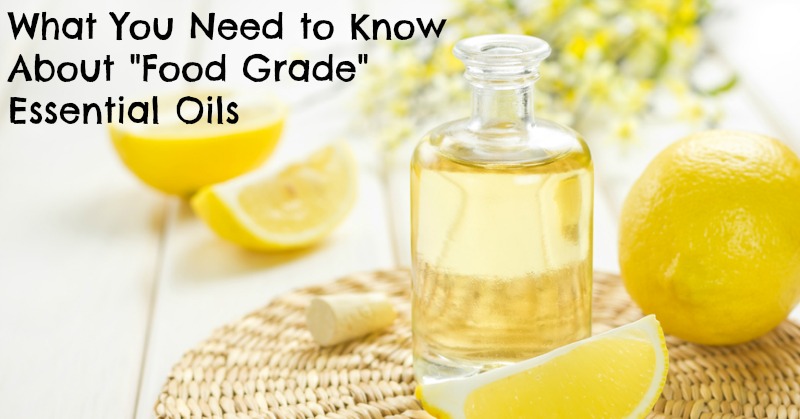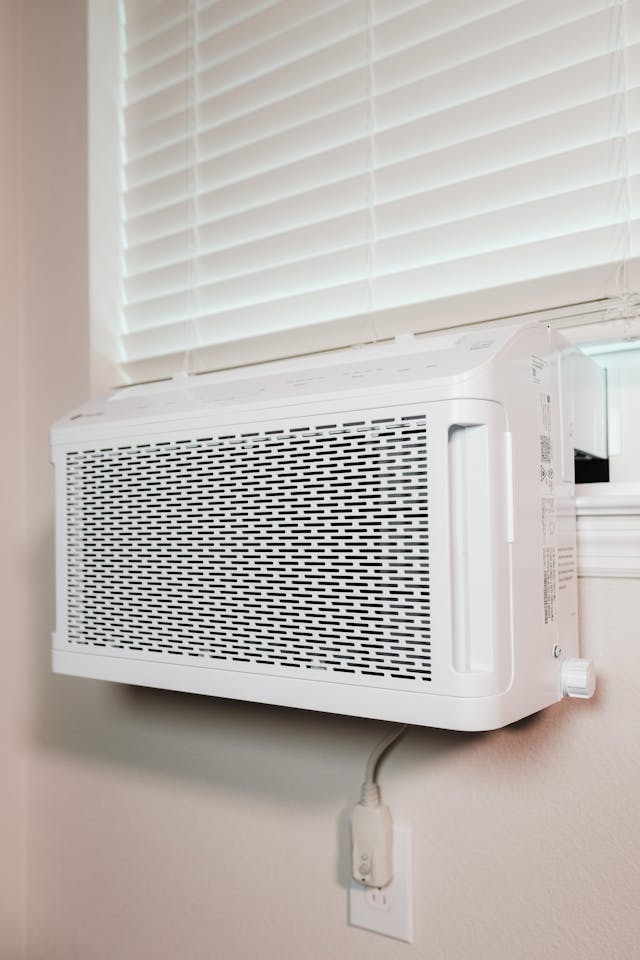What do you as a consumer think of when you hear the term “food grade” or “food safe” in relation to a product? It may conjure up images of being able to keep this ingredient in your kitchen and use it in any recipe as you please.
It may even lead you to believe that some governing body regulates this particular product that you are looking to buy, and certifies it as safe for use in food.
When it’s used in the labeling of essential oils, you may think that this oil must be safe to ingest, and since there are no instructions on what is a safe limit of ingestion, you may assume that there is no toxic limit.
If you thought any of those things, you are wrong.
In this article, I will attempt to clear up some of the misconceptions surrounding this term as it is used in the essential oil industry. My goal is to help families like yours make educated decisions about the products that you buy, and keep your family safe.
What “Food Grade” Essential Oils DOES NOT Mean
A lot of over-the-top statements have been made by essential oils salespeople and/or individual companies. These statements many times lead consumers to believe things about the company’s oils that are not true. Even worse are statements made by companies or sales reps that are down right false.
Statements like “certified by the FDA” or “certified food grade” sound fancy, but what do they mean? Firstly, I want to point out in a quick list the things that “food grade” does NOT mean.
The Term “Food Grade”…
- DOES NOT mean that a particular brand of oils are tested as safe for everyday food use
- DOES NOT mean that there are established guidelines for quality or quantity of use in foods
- DOES NOT mean that essential oils are regulated by any governing body or organization
- DOES NOT mean that a particular brand of essential oils is certified or approved as safe by the FDA
Then we are left with the question, what does the term “Food Grade” actually mean? Let’s find out…
What Does the Term “Food Grade” Actually Mean?
Firstly, it’s important to understand that there is no official grading system for essential oils in the industry. All terms such as “food grade”, “therapeutic grade”, “grade A”, etc., are inherently meaningless.
Read: Name Games from Learning About EOs
The FDA does not regulate “food grade” essential oils, neither does it require testing or set quality standards.
Because there is no grading standard here in the U.S., many companies categorize their essential oils as a fragrance or food grade to get FDA approval. By getting fragrance/food grade approval and not drug approval, essential oils are available to everyone with no restrictions. (source)
The other term you may encounter with essential oils labeled “food grade” is that of “generally recognized as safe by the FDA” or “GRAS”. This term is used by the FDA, but it does not mean what many people think that it means.
This is what it means:
Essential oils, oleoresins (solvent-free), and natural extractives (including distillates) that are generally recognized as safe for their intended use – FDA.gov
GRAS is a list of types of essential oils and extractives that are generally recognized across the board as being safe for use as a food additive.
However, the internal use of essential oils for therapeutic or culinary applications requires more care than a lot of people new to essential oils realize. Essential oils are highly concentrated, and many associated risks exist when taking essential oils internally without being properly educated or without being under the care of a properly trained practitioner. (source)
“GRAS” and “Food Grade” labels do not give any meaning behind whether or not a particular essential oils is safe for general household use or, if so, in what quantity.
Essential oil companies can make wild claims about the safety of their essential oils without any scientific basis, testing, or accountability, so long as they include the statement “these statements have not been approved by the FDA”.
Ingesting Essential Oils
Armed with the information that no essential oil is regulated, nor do they undergo required testing for safety of internal use, we must be especially careful in choosing how to use essential oils in our home and on our bodies.
Remember, there is no regulation of safe amounts of essential oil use in any form or application. Additionally, using essential oils for flavoring in food is not equivalent to baking flavors. For instance, using 1/8 of a teaspoon of orange essential oil to replace 1 Tbsp of orange extract, and only in a recipe that contains sufficient fats (coconut oil, butter, olive oil, etc.) to dilute the essential oil.
Aromatherapist Lea Harris, has this to say about ingesting essential oils:
Although modern multi-level marketing companies are casual about the internal use of essential oils, it is wise to carefully consider all the factors involved before using essential oils internally. There are few instances when ingestion of essential oils is preferred over other methods. Seeking guidance from a certified aromatherapist is recommended. (source)
Long-Term Effects of Improper Ingestion of Essential Oils Include:
- Internal Irritation and Burns
- Scarring and Ulcers
- Liver and/or Kidney Damage
- Potential for Cancer
Lea has more information on ingesting essential oils here.
You can also find information about the internal use of essential oils at Aroma Web here.
We must remember that just because essential oils come from a natural source, does not mean that they can be used without side effects or risks.
As for companies that use the term “food grade” for their essential oils, I will let you be the judge. However, I will say that if a company is using this term to describe their products, yet have very little information available for their customers as to what this term actually means, I would proceed with caution. In my opinion, this represents an issue of ethics within the essential oil industry. I prefer to buy from companies who are open and honest about their terms and practices.
~ Where to Buy Essential Oils ~
I currently recommend Mountain Rose Herbs or Plant Therapy.
More in this series:
My Favorite Essential Oils and Accessories
Uses for Lavender Essential Oil
How to Use Essential Oils Safely
~



thank you for this informative article. I am linking to it on my page. Love that you understand and promote that some of the tactics used by EO sales reps are downright dangerous! Thanks!!
Thank you Audrey. Nice page by the way. I will be checking it out more 🙂
This is fairly sad and yuck to read. I’m basically trying to figure out if the author is the type who loves and depends on the police state to make choices for people or if she just thinks poorly of the general public. I for one don’t find it hard to understand that food grade doesn’t indicate that the government made any sort of decision for her or for her kids or for the company that made the claim. I do however find it to be unethical and irresponsible to lay out sweeping and derogatory generalizations about all individuals and companies as she has done. Maybe this comes from some bad experience or poor personal choices. But my own personal experience has taught me that internal use can be very beneficial, which in no way undermines my understanding that I still need to treat them with the respect they are due and make future wise decisions rather than just relaxing and using any old thing on a whim as if all uses are appropriate.
I’m sorry that you feel this information is sad and yuck. I didn’t mention any companies. I didn’t say that internal use of oils does not have it’s place. Again, sorry you feel offended.
I can tell you that this author is not someone who supports a police state. She is being wise and simply raising some considerations for the safe use of essential oils. I found this article extremely well balanced and helpful in the whole debate about essential oils.
Thank you for this informative information! The article does seem to focus on the dangers of improper use rather than the benefits of proper use, which may be what the previous commenter meant. But I understand that was your intended purpose for writing it. While reading this, I’m reminded of what my husband often says about common sense, “it’s not that common.” With all the information available at our fingertips, it’s dangerous to become merely consumers (ingesting all information as credible and absolute), and not thinkers, who, skirting both naivete and cynicism, apply a balanced measure of skepticism and analysis.
Thanks Heather for stopping by. You are right, I am not out to tell anyone what to do or what not to do. I chose the “food grade” topic in particular because it is a term I see being used to sell essential oils and wanted to gather information in one place about what the term means and thoughts from an Aromatherapy standpoint on the issue. I’m glad you saw my post for what I intended it to be.
Thank you! I for one am grateful that when over half of my favorite natural blogs have become EO direct sales reps and are pushing them HARD that someone is speaking up a warning in spite of the potential backlash. EO’s can be a good thing in the hands of people that know what they are doing, but in this case its a few companies pushing it to make money. I was in direct sales for 10 years and I understand the games and gimmicks of it very well and no matter how great the company is the bottom line is money. I’m very disappointed to see the direct sales company invade this part of my life using the guise of once great blogs that now devote a quarter to half of their posts to promoting EO’s without any thread of caution. Personally I feel once you start selling something your opinion on it has lost its credibility, but unfortunately a lot of people still see them as a great blog that gives good advice like before. Thank you again!
Thanks for commenting Angela. I agree with you on many points. I also want to add that it is NOT me drawing a line in the sand about any EO company. Many times I hear out of the mouths of sales reps “no essential oil compares to ours. Ours is superior.” or something else to that effect. The truth is, there are many quality essential oil companies out there, a good majority of them are not pushy about sales and do not tout that they are superior, yet do give plenty of information as to their quality as well as plenty of information about safety and what their terms mean. I just challenge anyone interested in essential oils to do their research and look for a company they feel they can fully trust. I personally don’t care what company you buy from. My interest is in arming people with information so they can make conscious decisions.
As much as I am annoyed by *SOME* (not all!) of the sales pitches I come across for all things natural (and yes, EOs certainly are at the top of that list), I’m also annoyed by *SOME* (not all!) well-meaning posts like this. And the comments that come with it.
“Personally I feel once you start selling something your opinion on it has lost its credibility.” Really? I find it sad that someone who has used and has passion for a product, and thinks “I love this so much that I could sell it!” has lost all credibility. Did you listen to her when she didn’t sell? I don’t know. Also, if that feeling is across the board, then don’t click through any links on any blogs to buy anything or clip a coupon, because they are almost ALL affiliate links in some way, shape, or form, and therefore profiting from them.
As for the ingesting EOs concern. I find it humorous that 100,000ish deaths are blamed each year on the FDA and medications that they have approved, but we’re all up in arms about EOs. Something seems off about that. That said, I use EOs daily. I ingest very few, because diffusing and topical application work fabulously in most situations, but THANK GOODNESS for the few that I trust and help my body do what it needs to do.
Also? Our skin is very absorbent. “If you wouldn’t eat/drink it, don’t wear it.” Yep. I don’t always obey that one, either, but there is truth in that statement. Would I ingest any EO? Absolutely not! Is there a brand that I trust? You bet!
Lots of rambling, I suppose, simply to say that both spectrum extremes may want to tone it down a bit. The whole purpose of natural health is that WE, you and me, can be empowered to care for ourselves and the ones we love without seeking medical and/or pharmaceutical attention for every.little.thing. Use common sense and live long. 🙂
Hi and thanks for stopping by and commenting. Actually, I quite agree with your “rant” and I appreciate your feedback. I do want to point out that while, yes our skin does absorb the essential oils, it’s not the same as ingestion: “Because the mucous membrane is thinner, it allows for a more rapid ingestion of essential oils. Any safety concerns associated with the essential oil become more of a concern when ingested, as “up to 95% reaches the bloodstream when used internally” than the “potential 10% when used topically.” http://www.learningabouteos.com/index.php/2013/08/06/ingesting-essential-oils/
Hi Vanessa, I think Sheryl is a yuck. Anyway, thanks for your informative newsletter. I am always having to stop myself from believing everything that is advertised is true. Sometime I have to be nudged into a safer place. stay natural… gwyn
Thanks for stopping by gwyn!
Hello Vanessa. I agree that Sheryl is yuck or perhaps she was having a bad day and too it out on you, Whatever! It is amazing that people will find something to nitpick no matter how well thought out, well balanced and informative your article is. Thank you for a great blog and lots of great information. I learn something new every time I visit! Keep putting it out there for all who want it!
Thanks for the comment Oraclemay and I am glad you are enjoying my articles and information. It’s encouraging to hear that people like coming back to read 🙂
If the label on the essential oils list that it is for topical, diffusion AND ingestion is it generally safe for ingestion in a drop or two diluted in water?